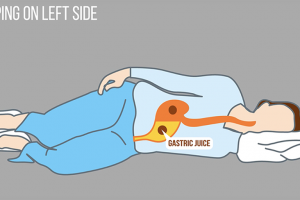Water is not just essential for our survival; it also possesses incredible healing properties that have been harnessed for centuries by various cultures around the world. Water therapy, also known as hydrotherapy or aquatic therapy, is a holistic approach to health and well-being that utilizes water’s unique qualities to promote physical and mental wellness. In this article, we will explore the numerous benefits of water therapy, different techniques, and how it can enhance your overall quality of life.
Understanding Water Therapy
Water therapy is a therapeutic practice that involves the use of water in various forms, such as hot or cold water baths, steam, or aquatic exercises, to achieve health and healing benefits. It has been practiced for thousands of years, with roots in ancient civilizations like Egypt, Greece, and Rome. Today, water therapy has evolved into a comprehensive treatment modality used in medical facilities, spa resorts, and even home settings.
The Benefits of Water Therapy
- Stress Relief: One of the most significant advantages of water therapy is its ability to reduce stress and promote relaxation. Soaking in a warm bath or immersing yourself in a hot tub can alleviate muscle tension and mental stress, leaving you feeling rejuvenated.
- Improved Immune System: Regular exposure to water at varying temperatures can stimulate the immune system. Alternating between hot and cold water can enhance circulation, potentially making your body more resilient to illnesses.
- Detoxification: Water therapy helps eliminate toxins from the body through sweating and increased circulation. This process can aid in the removal of harmful substances and promote overall detoxification.
- Weight Loss: Aquatic exercises, such as water aerobics and swimming, are excellent for burning calories and shedding excess weight. The buoyancy of water reduces the impact on joints, making it suitable for individuals with mobility issues.
- Pain Management: Hydrotherapy can be effective in alleviating various types of pain, including arthritis, muscle soreness, and chronic pain conditions. Warm water relaxes muscles, while cold water can reduce inflammation and numb pain.
- Enhanced Mental Wellness: Immersing yourself in water has a calming effect on the mind, reducing anxiety and promoting mental well-being. The soothing properties of water can be particularly helpful for individuals dealing with stress-related disorders.
Water Therapy Techniques
- Hot Baths: A relaxing soak in a hot bath can relieve muscle tension, improve circulation, and promote relaxation. Adding Epsom salts or essential oils to the bathwater can enhance the therapeutic effects.
- Cold Showers: Cold water showers or cold plunges can invigorate the body, boost circulation, and provide an energy boost. Cold therapy is often used in contrast with hot therapy for maximum benefits.
- Steam Baths and Saunas: Steam baths and saunas induce profuse sweating, aiding in detoxification and relaxation. The heat opens up pores, promoting a deep cleanse.
- Aquatic Exercises: Water aerobics, swimming, and water-based resistance exercises are excellent for improving cardiovascular fitness, muscle strength, and flexibility. The buoyancy of water reduces the risk of injury.
- Hydrotherapy Pools: These specialized pools offer various water jets and temperature settings to target specific areas of the body. They are often used in rehabilitation centers for pain management and physical therapy.
Precautions and Considerations
While water therapy offers numerous benefits, it’s essential to consider your individual health needs and consult a healthcare professional before starting any new therapy. Certain conditions, such as heart disease or skin infections, may require special precautions or limitations in water therapy.
In conclusion, water therapy is a holistic approach to health and wellness that taps into the natural healing properties of water. Whether you seek stress relief, pain management, detoxification, or improved overall well-being, water therapy offers a diverse range of techniques to suit your needs. Incorporate this ancient practice into your self-care routine, and experience the rejuvenating power of water for yourself.

























Add Comment